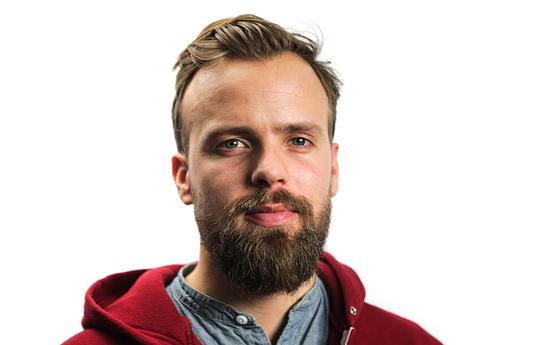Linda Liukas and Jemina Lehmuskoski
Linda Liukas is a children's author, illustrator, programmer and the founder of Hello Ruby. Linda has worked in the field of technology in education since before it became popular. When working she finds her inspiration from children, change and imagination.
Jemina Lehmuskoski researches playing and technology at Hello Ruby. She is an advocate for phenomenom based learning and believes that children should be given more real life problems to solve.
Skills
How do you see digitalization in education?
Linda: These children will be the last generation to reminisce about the computer being an amazing box that they used to sit in front of. They will be brought up in a fully computerized world. The one thing we are concerned with is that we run the risk of raising consumers, rather than people that can create things with computers and use technology for problem solving.
Do you feel that the way we are educating children fully prepares them for the needs of the 21st century?
Jemina: Not enough. We still focus on teaching subjects but we should maybe teach more skills that develop ways of thinking. Students should independently problem solve and search for information, because this is a more sustainable skill in the future.
Linda: One of the exercises we do with children is we give them a sticker that has a picture of an ON/OFF switch. We tell them that they have the ability to make any item in the room into a computer with that sticker. First the children think that this is a hard thing to do, but after a while they already understand that they will become the adults whose lives will be surrounded by computers. It is our responsibility to think ahead to what this world will look like. The things that children come up with, with their super imaginations, are wonderful.
Teachers
How would you encourage teachers to develop their teaching?
Linda: I would encourage teachers to be more curious and a bit more reckless. There is no reason to believe that teachers couldn't learn to understand how a computer works or how to write code.
Assessment
How should pupil evaluation and assessment change?
Jemina: Maybe the idea that there are no right or wrong answers. Things can be very complicated and actually sometimes no one might have the correct answer to a problem. How about testing learning rather than the outcome of learning?
Linda: Here's an important example: programmers make a lot of mistakes to get to the right result. No one thinks that good programmers are bad at what they do if they admit to having to google something, or if they have made eight mistakes before finding the correct answer.
Environments
What would be the most exciting learning environment?
Jemina: Probably one that combines things that are related to one another as well as the world outside of the schools - let's leave the classroom and enter the real world and see real things.
Linda: We have spent a lot of time pondering how to incorporate different kinds of phenomena into technology education, i.e. recycling or the Mars Rover. How to build things that would be inspirational, interesting and show us how the world really works.
Leadership
What are your views on PISA?
Jemina: I think you get answers to issues based on what you test. If we focus a lot on PISA results and testing with PISA, we get children who are very good at doing tests but they may lack other important skills.
What is the purpose of school?
Linda: The purpose of school is to develop good, versatile and creative adults.
Personal memory
What is your favorite memory from your own formal education?
Jemina: I started my education in a small international school that did a lot of phenomenom based learning. First we studied how to incubate duck eggs. We built an incubator and went to a farm to fetch real duck eggs. After that we incubated them, and against a light watched how the duck developed inside the egg. Some of the eggs hatched into baby ducks and we raised them outside in the yard behind our classroom. Eventually we took them to the school cook and ate them. This taught us the circle of life in a very real way.
Linda: My favorite memory is from grade five. I had an amazing teacher named Osmo who was great in many aspects but absolutely terrible at teaching art. During the first few weeks Osmo would make us draw the iceman Ötzi, something that I was upset over.
With the confidence of a fifth grader I went up to him and said: 'this is not okay, we want better teaching in art class' to which Osmo replied: 'plan a better curriculum of your own for art.'
The enthusiasm I had planning art education for my friends! We studied human proportions, color, and we designed our own Tamachoths (primitive interface plans). This gave me confidence and a feeling of capability that I can do this.
The next 100 years
The next 100 years of Finnish education should...
Linda: be a bit more colorful, a bit wilder and a lot quirkier.
Jemina: be authentically based on the needs and the thoughts of children.

